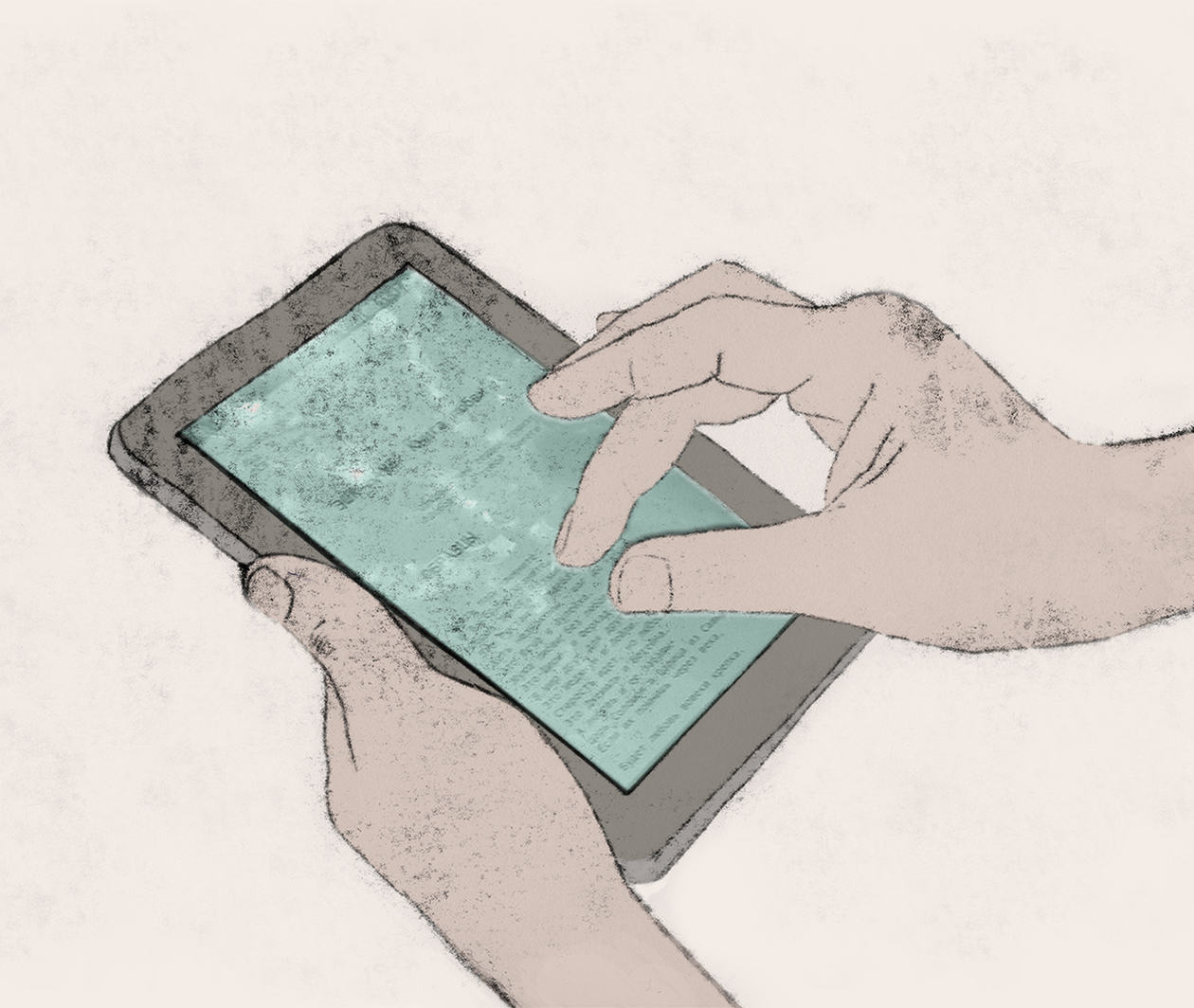Learn new ways of interpreting literary texts, from time-tested methods to computer-assisted practices such as distant reading.

Duration
6 weeksWeekly study
4 hours
Literature in the Digital Age: from Close Reading to Distant Reading
As we make sense of what we read, we construe meaning using the cultural technique of interpretation. Only rarely do we actually reflect this process: what are the means that help us understand literary texts? How does interpretation work? And how has our increasing use of electronic devices changed the way we read and interpret literature?
This free online course addresses these questions as it introduces you to a variety of ways of interpreting literary texts. We will look into time-tested methods such as close reading and will also address more recent practices such as computer-based distant reading.
What topics will you cover?
- The various media in which we read literature in the digital age
- The strengths and weaknesses of different reading strategies
- The core method of literary studies: close reading
- The various strategies you use on a daily basis as you read online texts
- A cooperative form of online reading called social reading
- Forms of historical readings of literary texts: historical and literary-historical contextualization
- Uses and limitations of distant reading, a recent scholarly approach to literary texts that relies on big data and computer analysis
- Approaches to literary texts that do not seek to interpret them but focus on their surface and materiality
When would you like to start?
Start straight away and join a global classroom of learners. If the course hasn’t started yet you’ll see the future date listed below.
Available now
Learning on this course
On every step of the course you can meet other learners, share your ideas and join in with active discussions in the comments.
What will you achieve?
By the end of the course, you‘ll be able to...
- Reflect on the different lay and professional reading strategies that are available for reading literature today.
- Describe the various media in which we read literature in the digital age.
- Identify the strengths and weaknesses of different reading strategies.
- Apply the core method of literary studies: close reading.
- Investigate the various strategies you use on a daily basis as you read online texts.
- Engage in a cooperative form of online reading called social reading.
- Compare two forms of historical readings of literary texts: historical and literary-historical contextualization.
- Discuss the uses and limitations of distant reading, a recent scholarly approach to literary texts that relies on big data and computer analysis.
- Report on your own distant reading experiment, using the Google Ngram Viewer.
- Explore approaches to literary texts that do not seek to interpret them but focus on their surface and materiality.
Who is the course for?
This course is for people from all walks of life who enjoy reading literature and would like to know how literary scholars interpret texts in the digital age.
If you are a student looking for an introduction to literary analysis, ‘Literature in the Digital Age’ will help you find it.
The only requirement is that you like to read and love to reflect your experience and discuss it with others.
What do people say about this course?
"I can honestly say that this course has been the most stimulating, intriguing and fun FutureLearn course that I have participated in. "
Who will you learn with?
Professor of North American and General Literature at the Department of English of the University of Basel, Switzerland. Tweets under @pschweighaus. (Photo credit: Peter Schnetz, University of Basel).
Learning on FutureLearn
Your learning, your rules
- Courses are split into weeks, activities, and steps to help you keep track of your learning
- Learn through a mix of bite-sized videos, long- and short-form articles, audio, and practical activities
- Stay motivated by using the Progress page to keep track of your step completion and assessment scores
Join a global classroom
- Experience the power of social learning, and get inspired by an international network of learners
- Share ideas with your peers and course educators on every step of the course
- Join the conversation by reading, @ing, liking, bookmarking, and replying to comments from others
Map your progress
- As you work through the course, use notifications and the Progress page to guide your learning
- Whenever you’re ready, mark each step as complete, you’re in control
- Complete 90% of course steps and all of the assessments to earn your certificate
Want to know more about learning on FutureLearn? Using FutureLearn
Learner reviews
Learner reviews cannot be loaded due to your cookie settings. Please and refresh the page to view this content.
Do you know someone who'd love this course? Tell them about it...
You can use the hashtag #FLdigireading to talk about this course on social media.
More courses you might like
Learners who joined this course have also enjoyed these courses.
Browse more in Literature and Business & Management
